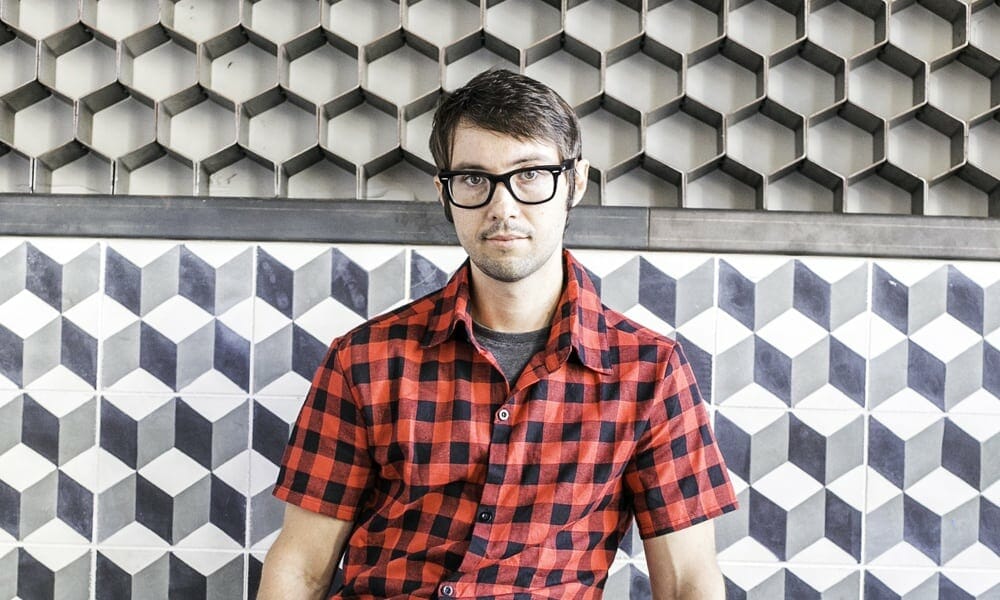Wake up every morning and remind yourself about your core values. Do it every day without fail — even if it seems obvious, even if you’ve done it a thousand times.
Stephen R. Foster’s dream is to live in a world where everyone knows how to code. He works to make that dream a reality. He is the co-founder of ThoughtSTEM — which teaches coding to thousands of students every year. He founded ThoughtSTEM after getting his Ph.D. in computer science, spending several years researching educational technology for teaching coding. He bootstrapped his company without investor funding but is eternally grateful to the National Science Foundation for funding both his Ph.D. research (via a Graduate Research Fellowship) and his company (via an SBIR grant).
Where did the idea for ThoughtSTEM come from?
ThoughtSTEM started as a tutoring company with three students in 2013. Today, we teach thousands of students every year.
What does your typical day look like and how do you make it productive?
I try to spend 80% of my time making new things and only 20% doing meetings and email responses. 90/10% is even better.
How do you bring ideas to life?
I code them to life. Or I hire and train coders to help me.
What’s one trend that excites you?
People are finally starting to realize that coding is a crucial skill for everyone to know. Our business provides coding education for kids, so it fits with the trends of the time.
What is one habit of yours that makes you more productive as an entrepreneur?
Celebrate diversity. Learn to look at things from other people’s point of view. Don’t fire people just because they think differently.
What advice would you give your younger self?
Start a business sooner. Learn to code sooner.
Tell us something that’s true that almost nobody agrees with you on.
You should avoid whatever the majority does. Be critical of what culture says. Be critical of what “most people” do.
As an entrepreneur, what is the one thing you do over and over and recommend everyone else do?
Wake up every morning and remind yourself about your core values. Do it every day without fail — even if it seems obvious, even if you’ve done it a thousand times.
What is one strategy that has helped you grow your business?
Automate as much as possible. Never hire people to do a job that a computer could do.
What is one failure you had as an entrepreneur, and how did you overcome it?
My first business failed because I co-founded it with people I didn’t know well enough. I founded my next business with people I had worked with a lot in the past.
What is one business idea that you’re willing to give away to our readers?
Start a hipster speakeasy bar that you can only get into if you know the password. And make a rule that no one is allowed to speak inside. You can only use gestures and American Sign Language to communicate. The fancy cocktails should all cost over $15. None of the drinks should have names — only special gestures.
What is the best $100 you recently spent? What and why?
I almost never spend $100 at one time. I spent $90, though, last weekend to hire a maid so that I could hangout with friends instead of cleaning the bathroom. Friends are important.
What is one piece of software or a web service that helps you be productive? How do you use it?
DrRacket is a fantastic programming environment that feels like it’s from the future.
What is the one book that you recommend our community should read and why?
“Ishmael”. It’ll remind you of the big picture.
Also anything by Ayn Rand. But don’t actually read them. Just put them on your bookshelf so other entrepreneurs think you’re a good capitalist.
What is your favorite quote?
“Let’s start with a test: Do you have any opinions that you would be reluctant to express in front of a group of your peers?
If the answer is no, you might want to stop and think about that. If everything you believe is something you’re supposed to believe, could that possibly be a coincidence? Odds are it isn’t. Odds are you just think whatever you’re told.”
― Paul Graham, Hackers & Painters: Big Ideas from the Computer Age
Key learnings
- Focus. Focus. Focus. If you (or your business) is doing two things at one time, you’re doing one too many.
- If you don’t know what your product is, you should be figuring it out. If you know what your product is, you should be selling it. Anything is a distraction.
- Learning to code will make you better at everything you do.
Connect:
stephenfoster.us
Stephen R. Foster on Twitter: twitter.com/s_r_foster
Stephen R. Foster on Linkedin: www.linkedin.com/in/stephen-r-foster-98904572/
Carlyn runs the day-to-day publishing operation here at ideamensch and interacts with our awesome customers and entrepreneurs. She is likely editing this with a cat on her lap.

